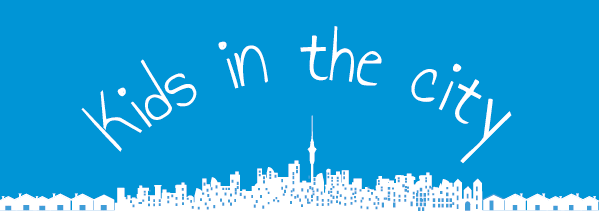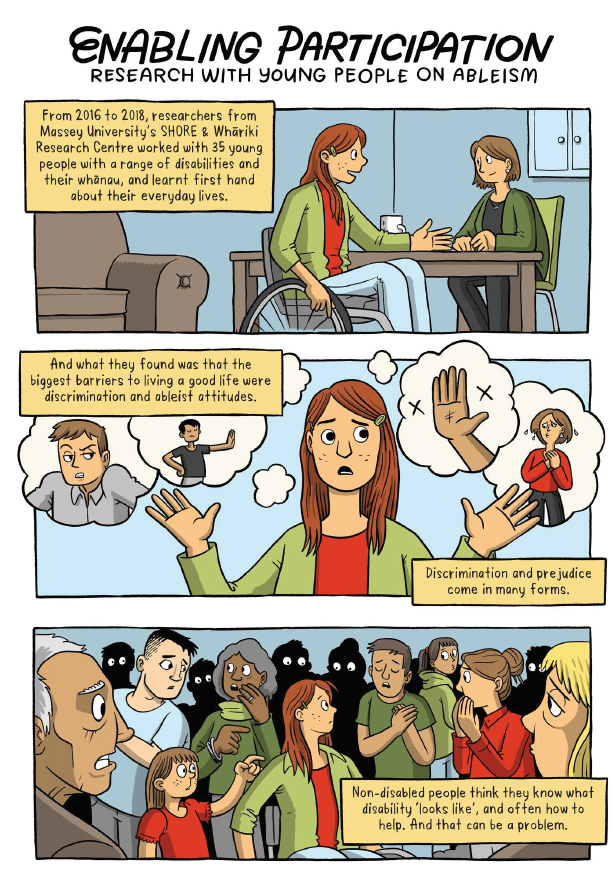This Health Research Council funded study, undertaken in Auckland with 35 disabled children and young people and their whanau, has found social attitudes can undermine inclusion and participation as much if not more than inaccessible built environments. The lived experiences of study participants, who had visual or mobility impairments or were hard of hearing, were explored through at home, school and/or walking interviews with young people and their family members. A collaboration between the research team and cartoonist Toby Morris resulted in a comic strip that illustrates various ways disabled young people’s mobility and participation in community life can be thwarted by the ableist attitudes of others.
While we initially planned to involve children and young people aged 12-18 in the study, early consultations with our advisory group of disabled young people recommended extending the age range to 24 years to better capture enablers and barriers to community participation beyond home and school. However, given that a number of participants were in the younger age range, we have included the projects on the Kids in the City website. Data continues to be analysed and further papers are forthcoming.
Publications:
Carroll P, Witten K, Calder-Dawe O, Smith M, Kearns R, Asiasiga L, Lin J, Kayes N, Mavoa S (2018) Enabling Participation for Disabled Young People, BMC Public Health 2018 18:712
Octavia Calder-Dawe, Karen Witten & Penelope Carroll (2019): Being the body in question: young people’s accounts of everyday ableism, visibility and disability, Disability & Society, DOI: 10.1080/09687599.2019.1621742

